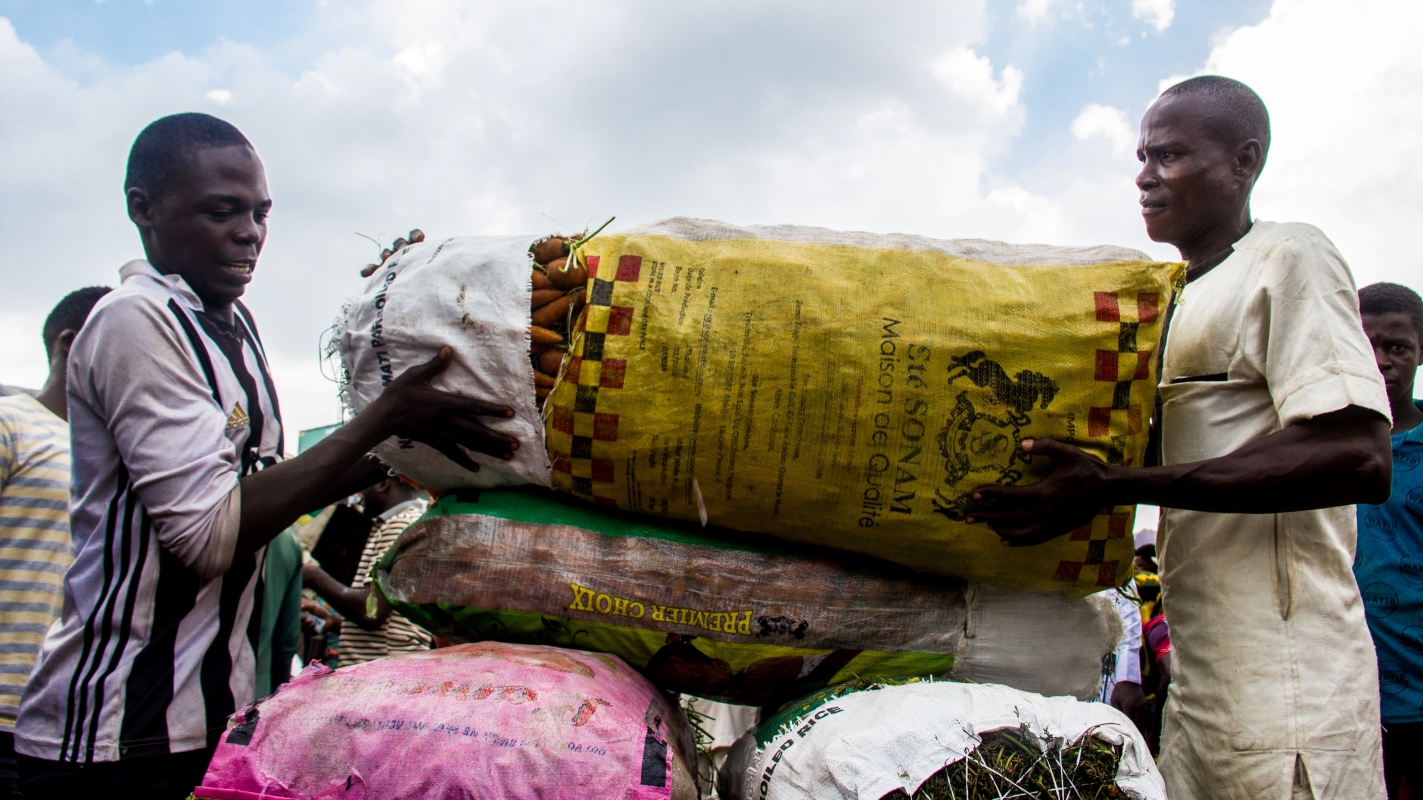This year, LSE USAPP has published over 700 articles which have been read thousands of times. Here are our top ten most popular articles by views for 2014. Thanks to everyone for reading, and we look forward to bringing you the best in commentary and research on U.S. politics and policy in 2015!
__________________________________
1. Chicago is far from being the murder capital of the U.S.
 Recent years have seen Chicago named the ‘murder capital’ of the U.S., echoing its past legacy as a ‘gangster city’. Andrew Papachristos argues that Chicago’s crime and murder rates are at an historic low, and that is nowhere near being the most violent city in the U.S. By analyzing 48 years of crime date from Chicago, he argues that crime is on a downward trend, and becoming more gang related. He also writes that these falls have been unevenly distributed geographically, and that a distinct crime gap remains.
Recent years have seen Chicago named the ‘murder capital’ of the U.S., echoing its past legacy as a ‘gangster city’. Andrew Papachristos argues that Chicago’s crime and murder rates are at an historic low, and that is nowhere near being the most violent city in the U.S. By analyzing 48 years of crime date from Chicago, he argues that crime is on a downward trend, and becoming more gang related. He also writes that these falls have been unevenly distributed geographically, and that a distinct crime gap remains.

 The U.S. spends more on healthcare as a percentage of GDP and on a per capita basis, than any other country in the world, something that aspects of 2010’s Affordable Care Act aim to alleviate. Kate Ho and Ariel Pakes take a close look at the likely effects of Accountable Care Organizations: groups of providers whose payment arrangements give physicians incentives to control costs. They find that through capitation (flat, fixed payments) and the sharing of savings, these new organizations could reduce healthcare costs by between 4.5 and 5 percent without corresponding quality reductions.
The U.S. spends more on healthcare as a percentage of GDP and on a per capita basis, than any other country in the world, something that aspects of 2010’s Affordable Care Act aim to alleviate. Kate Ho and Ariel Pakes take a close look at the likely effects of Accountable Care Organizations: groups of providers whose payment arrangements give physicians incentives to control costs. They find that through capitation (flat, fixed payments) and the sharing of savings, these new organizations could reduce healthcare costs by between 4.5 and 5 percent without corresponding quality reductions.
3. Profit from Crisis: Why capitalists do not want recovery, and what that means for America
 After years of recession and sluggish growth, for many, an economic recovery is the light at the end of the tunnel that will lead to greater employment, higher income and perhaps less inequality. While conventional economic wisdom holds that capitalists should be just as anxious to see recovery as workers, Jonathan Nitzan and Shimshon Bichler argue that it is actually in capitalists’ interests to prolong the crisis, as their relative power increases in times of stagnation and unemployment. Using U.S. data from the past century, they find that when unemployment rises, capitalists can expect their share of income to rise in the years that follow. Unless society takes steps to decrease unemployment, capitalists are likely to continue to pursue stagnation for their own gain.
After years of recession and sluggish growth, for many, an economic recovery is the light at the end of the tunnel that will lead to greater employment, higher income and perhaps less inequality. While conventional economic wisdom holds that capitalists should be just as anxious to see recovery as workers, Jonathan Nitzan and Shimshon Bichler argue that it is actually in capitalists’ interests to prolong the crisis, as their relative power increases in times of stagnation and unemployment. Using U.S. data from the past century, they find that when unemployment rises, capitalists can expect their share of income to rise in the years that follow. Unless society takes steps to decrease unemployment, capitalists are likely to continue to pursue stagnation for their own gain.
4. City main street networks show a drastic shift away from historic patterns of human-scale design

 Have you ever wondered why some places seem built for automobiles as opposed to humans? In a recent study, J. Alexander Maxwell and fellow researchers from the University of Strathclyde’s Urban Design Studies Unit find evidence that before the rise of the automobile, cities developed on a walkable “human” scale, with main streets that rarely exceeded 400 meters (a little more than 437 yards). Along with Charles R. Wolfe, they argue that this uniformity reveals an underlying pattern to pedestrian city settings, which should be considered in contemporary urban design and policies.
Have you ever wondered why some places seem built for automobiles as opposed to humans? In a recent study, J. Alexander Maxwell and fellow researchers from the University of Strathclyde’s Urban Design Studies Unit find evidence that before the rise of the automobile, cities developed on a walkable “human” scale, with main streets that rarely exceeded 400 meters (a little more than 437 yards). Along with Charles R. Wolfe, they argue that this uniformity reveals an underlying pattern to pedestrian city settings, which should be considered in contemporary urban design and policies.
5. Airstrikes on Isis targets in Syria and Iraq are legal under international law
 Last week, the United Kingdom’s parliament voted to once again intervene militarily in Iraq in order to attack the terrorist group Isis. This follows more than a week of US and Arab world airstrikes on Isis targets in Syria. While the Iraqi government requested assistance from British and other foreign powers, the Syrian regime has not asked for intervention. Many commentators have questioned the legality of such a move under international law. In this article, Ranj Alaaldin and Bilal Khan argue that airstrikes on Isis targets in both Syria and Iraq are legal and justified under international law. It is the defence of Iraq that triggers the right to use force against Isis targets in Syria, they write.
Last week, the United Kingdom’s parliament voted to once again intervene militarily in Iraq in order to attack the terrorist group Isis. This follows more than a week of US and Arab world airstrikes on Isis targets in Syria. While the Iraqi government requested assistance from British and other foreign powers, the Syrian regime has not asked for intervention. Many commentators have questioned the legality of such a move under international law. In this article, Ranj Alaaldin and Bilal Khan argue that airstrikes on Isis targets in both Syria and Iraq are legal and justified under international law. It is the defence of Iraq that triggers the right to use force against Isis targets in Syria, they write.

 Income and economic equality have been on the rise in recent decades – but has this trend been fuelled only by increasing pay packets for the richest, or has wealth inequality risen as well? Emmanuel Saez and Gabriel Zucman find that over the past three decades the share of household wealth owned by the top 0.1 percent has increased from 7 to 22 percent. They write that the growing indebtedness of most Americans through mortgage and credit card obligations, combined with the collapse in the value of their assets during the Great Recession, and stagnant real wages have led to the erosion of the wealth share of the bottom 90 percent of families. They warn that without policies to reduce the concentration of wealth, such as estate taxes, within two decades the gains in wealth democratization which occurred in the New Deal and after World War II may well be lost.
Income and economic equality have been on the rise in recent decades – but has this trend been fuelled only by increasing pay packets for the richest, or has wealth inequality risen as well? Emmanuel Saez and Gabriel Zucman find that over the past three decades the share of household wealth owned by the top 0.1 percent has increased from 7 to 22 percent. They write that the growing indebtedness of most Americans through mortgage and credit card obligations, combined with the collapse in the value of their assets during the Great Recession, and stagnant real wages have led to the erosion of the wealth share of the bottom 90 percent of families. They warn that without policies to reduce the concentration of wealth, such as estate taxes, within two decades the gains in wealth democratization which occurred in the New Deal and after World War II may well be lost.


 Sex trafficking laws assume that all underage sex workers are exploited young girls who have been forced into such work by a vicious pimp. But does this actually reflect the experience of most young, domestic sex workers? Using ethnographic research from Atlantic City and New York City, Anthony Marcus, Chris Thomas, and Amber Horning find that underage sex workers have much more agency in their relationships with pimps than many assume, and that sex trafficking discourses may serve to further alienate them from organizations to assist them. The authors call for academics and policy makers alike to set aside their ideological positions about sex work and to seek a deeper understanding of young people in commercial sex markets.
Sex trafficking laws assume that all underage sex workers are exploited young girls who have been forced into such work by a vicious pimp. But does this actually reflect the experience of most young, domestic sex workers? Using ethnographic research from Atlantic City and New York City, Anthony Marcus, Chris Thomas, and Amber Horning find that underage sex workers have much more agency in their relationships with pimps than many assume, and that sex trafficking discourses may serve to further alienate them from organizations to assist them. The authors call for academics and policy makers alike to set aside their ideological positions about sex work and to seek a deeper understanding of young people in commercial sex markets.
8. Workplace technology use may increase both employees’ distress and productivity
As technology has become an inescapable part of most workplaces, it has become ever more important to understand its impact on employees. Using data from two surveys of U.S. workers, Noelle Chesley examines the effects of both personal and job-related technology use. She finds that increased technology use, especially when it extends work into personal life, is linked with higher levels of worker distress. However, it is also associated with gains in productivity, and personal technology use at work may help employees to manage work-related stress.
9. American Prisons are not a Revolving Door: Most Released Offenders Never Return
The dominant narrative around recidivism in America is that most released offenders go on to reoffend and return to prison. In new research, William Rhodes argues that this impression is wrong and that two out of every three released offenders never return to prison. He argues that previous estimates about recidivism have failed to take into account the overrepresentation of returnees in prisons. Accounting for this factor, he finds that only 11 percent of offenders return to prison more than once, and that the total time that offenders actually spend in prison is overestimated as well.
10. ‘Harperism’: Undermining Canadian democracy since 2006
 Progressives face a tough fight in next year’s Canadian election, currently scheduled for October. Claudia Chwalisz writes that even as the support for the Liberal Party and the New Democratic Party outstrips the Conservatives’, Prime Minister Stephen Harper’s government’s changes to the electoral rules will likely suppress voter turnout and leave the door open to more electoral fraud.
Progressives face a tough fight in next year’s Canadian election, currently scheduled for October. Claudia Chwalisz writes that even as the support for the Liberal Party and the New Democratic Party outstrips the Conservatives’, Prime Minister Stephen Harper’s government’s changes to the electoral rules will likely suppress voter turnout and leave the door open to more electoral fraud.
Shortened url for this article: http://bit.ly/1zvFMN8
Featured image credit: Leo Reynolds (Flickr, CC-BY-NC-SA-2.0)









